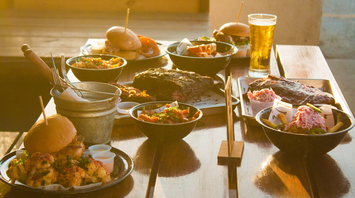Culinary Travel in 2025: A Year of Tasteful Discoveries

The culinary tourism boom in 2025 is reshaping how travelers experience global cultures through food. Mexico City has taken a major step forward with its inclusion in the Michelin Guide in 2024. This recognition not only highlights traditional Mexican cuisine but also elevates modern interpretations of local flavors. Sicily, crowned the European Gastronomic Region of 2025, offers a year-long celebration of its culinary traditions, featuring wine tastings, food festivals, and guided tours of its famed agricultural landscapes.
Other regions are seizing the opportunity to enhance their culinary appeal. Cumbria in the UK introduces itineraries emphasizing ultra-local dining experiences, connecting visitors to the region's celebrated farm-to-table practices. Meanwhile, Busan in South Korea is emerging as a culinary destination, with its Michelin-rated restaurants blending innovative techniques with time-honored recipes. These destinations promise to attract food lovers seeking unique gastronomic adventures.
For travelers, the rise of culinary tourism means more than just indulging in fine dining. It opens doors to exploring the cultural and historical contexts of the dishes they enjoy. Through events like farm tours and regional food festivals, visitors gain a richer understanding of the communities they visit. Such experiences go beyond tasting, fostering a deeper appreciation for the heritage tied to each meal.
Sustainability has become a cornerstone of many culinary initiatives worldwide. Destinations are increasingly focusing on organic and locally sourced ingredients. By supporting local farmers and reducing environmental impact, these projects align with the values of eco-conscious travelers. This approach not only improves the quality of food offerings but also strengthens the bond between tourists and local communities.
In 2025, culinary tourism continues to set new standards for immersive travel. As regions embrace their gastronomic identities, they create opportunities for travelers to connect meaningfully with their destinations. Through food, visitors experience culture on a personal level, making their journeys unforgettable and enriching in ways that extend far beyond the table.



















